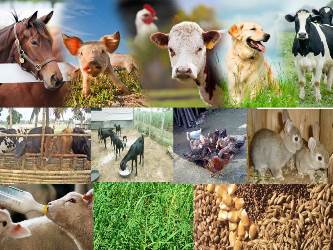



Received: 01-Feb-2022, Manuscript No. GJASLPAB-22-59396; Editor assigned: 03-Feb-2022, Pre QC No. GJASLPAB-22-59396 (PQ); Reviewed: 17-Feb-2022, QC No. GJASLPAB-22-59396; Revised: 24-Feb-2022, Manuscript No. GJASLPAB-22-59396 (R); Published: 28-Feb-2022, DOI: 10.35841/2408-5499.22.10.3963
Traditionally, specialized courses in dairy science have focused on the basic sciences that underpin the production of dairy products and the management of milk production. They include dairy products, milk, cream, butter and related fat products, fermented dairy products such as cheese and yogurt, dried and concentrated products, the nature of frozen foods and dairy desserts, and the industries used in dairy manufacturing. It contained specific details about the technology, production control.
In order to set up dairy curricula that can be used by the industry, a group that International Dairy Federation (IDF) will be held in 2000 proposes typical programs for dairy operators and dairy technologists. These programs point out current practices in many countries, but a variety of local industries and education agencies will be expected.
The technical requirements of graduates do not decrease. Curious technologies require a larger width to achieve the flexibility from the viewpoint of larger depth and specialization, and milk science and technology, and management of workplace.
Dairy science has made significant contributions at all stages of dairy cow production. Genetics has provided a cow that has great potential for milk production. We have learned a lot about nutrition and feeding methods to provide adequate nutrition to meet the production potential of the cow. New technologies continue to provide nutritional products that enable nutritionists to push the boundaries of balanced rations for production and improve the well-being of cattle and the environment.
Modern dairy products are large-scale, automated and specialized production facilities. They exist as part of a complex company or organization and are often interested in areas other than dairy products. In these factories and organizations, like many other professions, graduates are required to develop general skills such as communication, the ability to manage and manage change, and the ability to guide and motivate employees. As companies and industries change faster, employers want graduates to be more flexible.
The percentage of female students enrolled in the four- year program has increased significantly. Computers and information technology have become an integral part of educational programs. Many undergraduates choose internships and work experience, and there is a high correlation between internships and the career paths chosen by students. University-private sector cooperation is strong evidence that undergraduate courses are related to the dairy industry. Significant extracurricular activities, including the Dairy Science Club, are also popular and teachers recognize that they are strengthening self-development and leadership skills.
The Dairy Science University program in the current 2021 survey was primarily from an integrated faculty. Only two of the 23 universities were independent dairy science departments. This is similar to the previous survey in 2004, when only four of the 36 universities were dairy science schools in their own right and the dairy science school was either animal science or veterinary medicine. It shows a long-term tendency to combine with dairy.
An important part of the education of students, especially those with a non-agricultural background, is to provide a practical foundation for teaching in a four- year college dairy program. Note that 21 of the 23 Land-Grant Universities included in the survey maintain at least one college dairy farm available to teach students, and that four colleges have multiple herds of dairy cows.